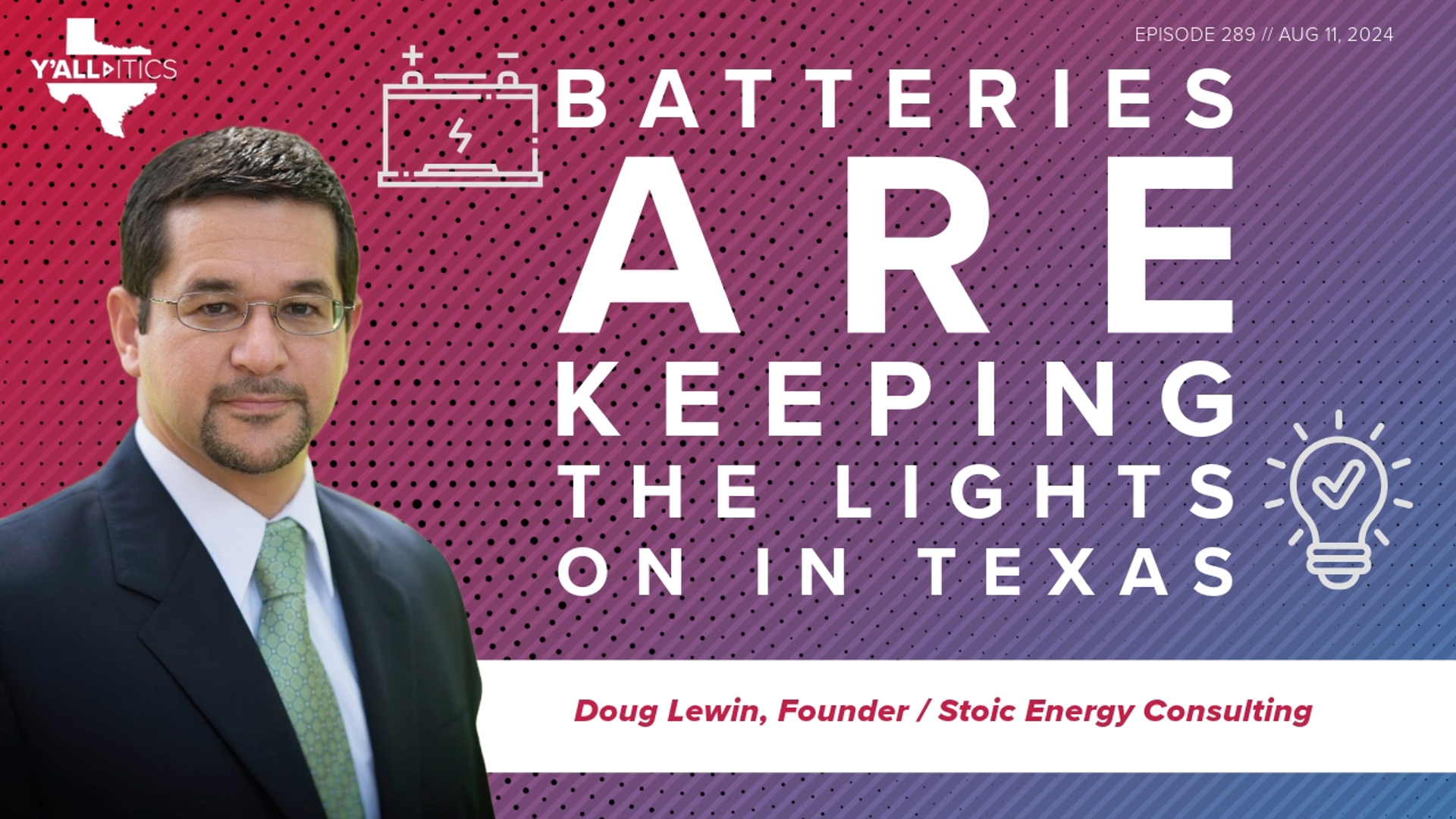TEXAS, USA — After Hurricane Beryl tore through the Houston area, more than 2.5 million people were left without power, many of them for days.
CenterPoint Energy, the local power delivery company, has taken a lot of heat from customers, and Texas lawmakers, for not deploying large generators that could power entire neighborhoods.
But what if batteries, storing power from renewable energy, had been in place?
“It would help in a major way,” said Doug Lewin, founder of Stoic Energy, a clean energy consulting firm, told us on Y’all-itics.
Doug Lewin says those batteries would be part of what’s known as a microgrid, which is a local electrical grid that can power individual buildings, such as critical infrastructure, if the main grid fails, or if, in the case of Houston, power distribution breaks down.
In other words, after Hurricane Beryl, a microgrid could have kept the power on at hospitals, assisted living centers, police and fire departments and cooling centers.
And Lewin says critical infrastructure is wave one.
With the right investment, it could eventually lead to neighborhood microgrids.
“Your home can literally be a microgrid. It’s a fancy word, but it basically just means when the grid goes down you can continue to produce power. And we can even set up a system where you share that power with your neighbors,” Lewin said.
If you’ve ever wondered how your local H-E-B keeps the lights on after storms, even when everywhere else is dark, it’s because they use natural gas microgrids.
Voters just approved an amendment to put money towards microgrids powered by solar, batteries and gas for critical infrastructure, but Lewin says it will take even more commitment from lawmakers and utilities to deploy microgrids on a regular basis.
During the last legislative session, many Republican lawmakers pushed bills that supported the fossil fuel industry, while actively working against renewables.
Lewin expects another hostile environment during the next session in January and says the renewable industry is gearing up for another fight.
“It really is the legislature cutting off its nose to spite its face. This is the way if you want economic growth, you want new manufacturing in the state, you want people to be able to move here and for this state to grow,” he said bluntly. “You’re really fighting gravity and swimming upstream to try to do all that with new fossil plants. It’s basically impossible.”
Lewin says they’re also keeping close tabs on the national election as well because the results will have consequences in a state he says has struggled with reliability and affordability for a long time now.
And while we continue to push power demand records, the use of renewables is also at an all-time high in Texas.
We set the record for peak demand last summer at just more than 85,000 megawatts (MW), and we are routinely in the mid-70s this summer, with some days in the low 80s.
On some days, 25% of that power is coming from solar.
Five years ago, Lewin says solar only produced around 2,000 MW. These days, it’s routinely hitting 20,000 MW of actual production, with our state ranking first in utility solar scale production (think large fields of solar panels).
And he says Texas is now number two in battery storage, with around 8,000 MW of storage, which he adds is good for just about any “ability” you can think of.
“It’s a great, great story for Texas. Really good for reliability, for affordability, for sustainability, really whatever sort of thing you want to look at, batteries are really good for it,” Lewin told us.
Lewin also discusses how “mailbox money” from renewables are helping Texans in deeply Republican areas of the state. And find out why he encourages Texans to check out the ERCOT energy dashboard: Grid and Market Conditions (ercot.com). Listen to the entire episode for more. Cheers!
More Y'all-itics coverage:

